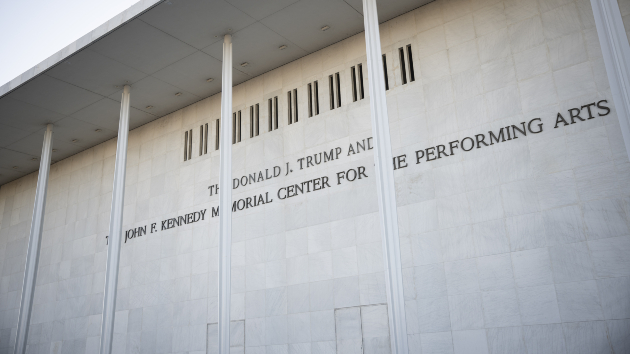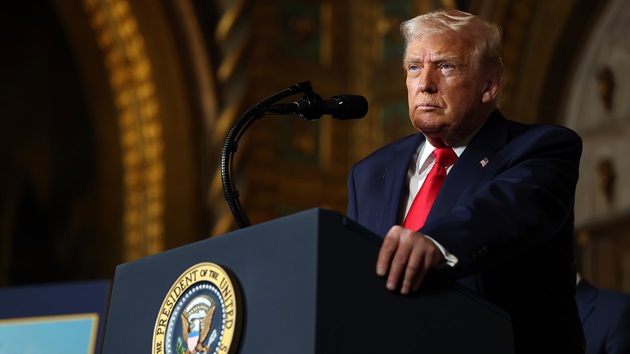Rubio to be pressed on Trump’s foreign policy goals at confirmation hearing
Written by ABC Audio ALL RIGHTS RESERVED on January 15, 2025
(WASHINGTON) — Florida Republican Sen. Marco Rubio is no stranger to grilling nominees during confirmation hearings, but on Wednesday he’ll be the one in the hot seat as President-elect Donald Trump’s pick to be the top U.S. diplomat moves forward.
Rubio is appearing before the Senate Foreign Relations Committee on which he’s served since 2011 and is expected to sail through the confirmation process with bipartisan backing, potentially becoming the 72nd secretary of state as soon as Inauguration Day.
But that doesn’t mean his testimony and questioning before his colleagues in the Senate won’t produce any fireworks.
Here’s what to watch for:
New territory
Rubio’s well-documented public record, along with support from colleagues on both sides of the aisle, may clear the way for lawmakers to ask the nominee more targeted questions about the foreign policy of the president he’ll serve under.
In recent weeks, Trump has made international waves by refusing to rule out using the U.S. military to fulfill his goals of acquiring Greenland and the Panama Canal and saying he’ll use economic force to make Canada the 51st state.
Wednesday’s hearing is set to be the first time Rubio faces extensive questioning about Trump’s territorial ambitions — and whether he would work to make them a reality as secretary of state.
“I would imagine he’s going to be deferential to the president-elect,” said Richard Goldberg, a former official at the National Security Council and Senate foreign policy adviser. “These are his policy decisions, these are the president-elect’s statements.”
“[Rubio] will hopefully articulate what the American interest is in all of these places in a circumspect way,” Goldberg, who is also a senior advisor at the Foundation for the Defense of Democracies, added.
On the Panama Canal, Trump has used overblown claims about China’s involvement in its operations to justify his interest in overtaking it — falsely claiming earlier this month that the waterway, which is operated by the Panamanian government, is actually run by Beijing.
But Rubio — a son of Cuban immigrants who has paid close attention to Latin America during his political career — has expressed fact-based concerns about the Chinese Communist Party’s (CCP) influence over the Panama Canal that may resurface during the hearing.
“The Panama Canal is as an important transit route to intercept illicit activities, yet the canal is surrounded by #CCP enterprises,” he tweeted in 2022. “We must continue to make clear that Panama is an important partner & warn against CCP attempts to establish a foothold in our region.”
In early 2024, Rubio also led a bipartisan group of senators in urging the government of Panama to investigate tankers accused of smuggling Iranian through the canal.
“I think he has the experience, the depth of knowledge, and the political expertise to take any question and handle it pretty well,” Goldberg said.
Converging and contrasting views
Rubio — long known as a Russia and China hawk in the Senate — has been accused of dialing back his interventionist foreign policy approach to align with Trump’s positions and may face fresh criticism from opponents who believe he might prioritize serving as a yes man to president over serving the country.
In the early phase of the Russian invasion of Ukraine, Rubio was a staunch supporter of Kyiv’s war efforts. But over time, as Trump became a more outspoken critic of continuing American aid to Ukraine, Rubio appeared to change course — eventually calling for a negotiated settlement to end the conflict.
There are still many foreign policy topics where there’s still plenty of distance between Rubio and Trump. While the president-elect is a near-constant critic of NATO, Rubio co-sponsored legislation with Virginia Democratic Sen. Tim Kaine aimed at preventing any commander in chief from exiting the alliance.
But ultimately, Goldberg says, Rubio’s role in the incoming administration will be advising the president on foreign policy matters and then carrying out what Trump decides.
“That’s the job he’s signing up for,” Goldberg said. “Ultimately, this President Trump’s secretary of state — no one else’s.”
In his prepared opening statement, Rubio says, “Ultimately, under President Trump, the top priority of the United States Department of State must be and will be the United States.
“The direction he has given for the conduct of our foreign policy is clear. Every dollar we spend, every program we fund, and every policy we pursue must be justified with the answer to three simple questions: Does it make America safer? Does it make America stronger? Does it make America more prosperous?” he’s expected to say.
The ‘deep State’ Department?
Rubio’s confirmation may also present an opportunity to gain insight into how he intends to lead the State Department’s roughly 77,000 employees — and whether he might attempt to purge its ranks of those he or the president-elect view as political enemies, as incoming national security Adviser Mike Waltz reportedly plans to do at the National Security Council.
In an opinion piece published in The Federalist in April 2024, Rubio said there were many government employees who “do good work, day in and day out, but expressed concern about “others who act as self-appointed “protectors” of institutions against politicians they don’t like.”
“Looking ahead to another Trump administration, it’s clear why liberal elites want to protect the “deep state.” They hate Donald Trump and everything he stands for,” Rubio wrote.
Copyright © 2025, ABC Audio. All rights reserved.






